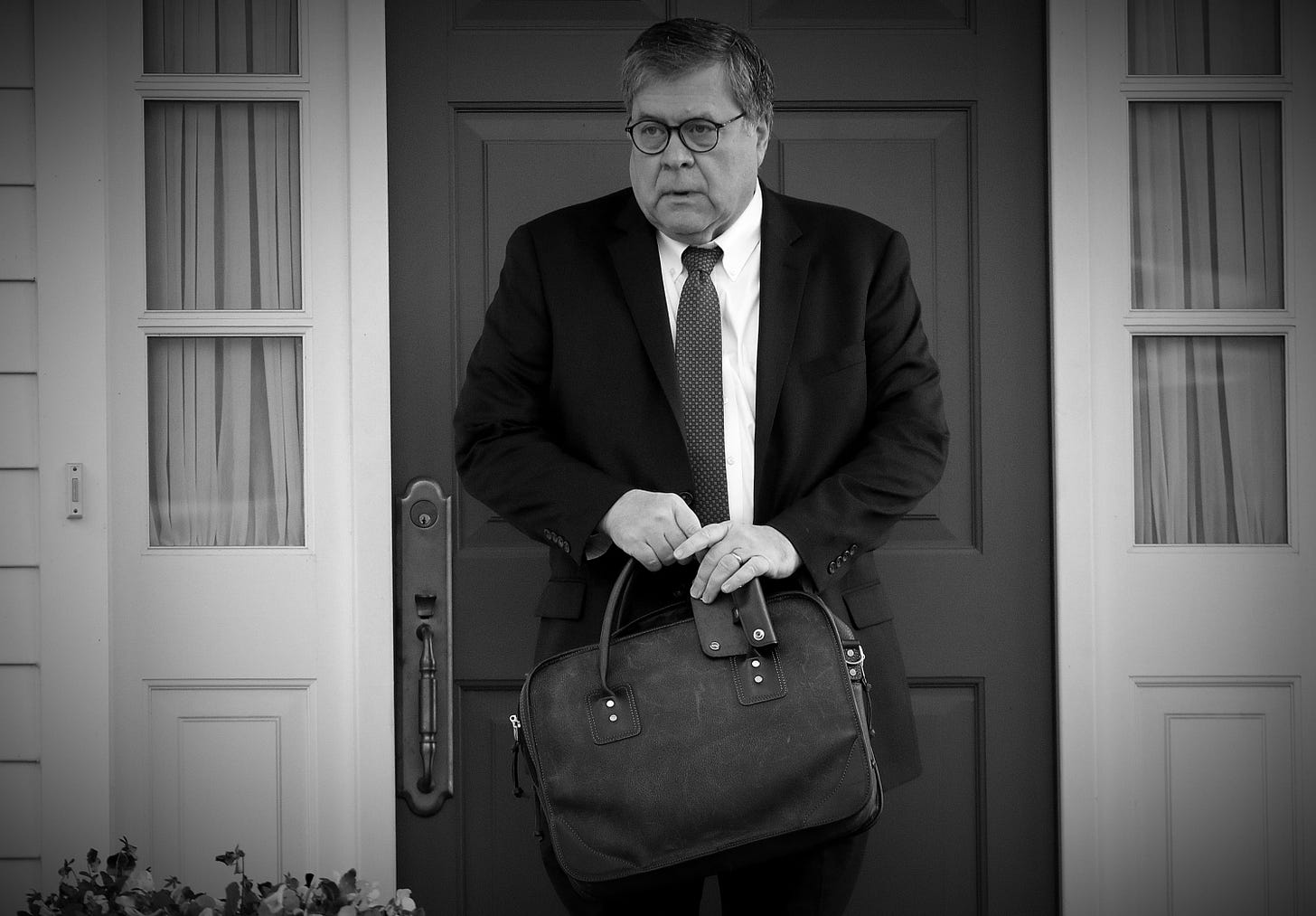Don’t Read Too Much Into DOJ’s Investigation of the Russia Probe—Yet
At first glance, the Department of Justice’s decision to shift its “review” of the Russia probe into a formal criminal investigation would seem to confirm the suspicion that Attorney General Bill Barr has once again shown that he views his first priority as the protection of President Donald Trump, not the protection of the Constitution.
That may yet turn out to be the case. But also maybe not. We need more information before we’ll know exactly what this latest decision means.
For (at least) two years, President Trump has been pushing a conspiracy theory to counter the unanimous conclusion of the entire U.S. intelligence community, the Mueller investigation, and a bipartisan report by the Republican-led Senate Intelligence Committee that a massive Russian campaign of election interference coincided with Trump’s 2016 election victory.
In the worst case, the move to transform the review into a criminal investigation could be the latest manifestation of Barr’s corruption and politicization of the Justice Department as Barr continues to attempt to help Trump muddy the waters on the subject of Russian interference.
But the worst-case is not the only plausible interpretation.
We do not know the scope or breadth of the newly-minted criminal investigation. While it may be broadly directed at the Russia probe, it is equally possible that it is directed narrowly at the discrete acts of one or two specific people in the intelligence and/or law enforcement communities.
That would be improper if such an investigation was politically motivated, but the rationale for the new phase may have as much to do with process as with substance.
When the investigation was being conducted as an administrative review, the DOJ didn’t have a full toolbox to conduct the inquiry. Requests for voluntary testimony from potential witnesses during such a process could be ignored or rejected without consequence. That may be one reason why U.S. Attorney John Durham, who has been running this investigation for the last five months, hasn’t interviewed any of the FBI or DOJ employees who were directly involved in the opening of the Russia investigation. Politico reports:
Those not contacted include former FBI counterintelligence agent Peter Strzok; former FBI general counsel Jim Baker; former chief of the National Security Division’s Counterintelligence and Export Control Section David Laufman; and former head of DOJ’s National Security Division Mary McCord. Former CIA Director John Brennan, Trump-Russia dossier author Christopher Steele, and former Trump adviser Carter Page—who was the subject of a surveillance warrant that is now under investigation by the inspector general—haven’t been contacted for interviews, either.
We don’t know why Durham hasn’t interviewed any of these people. Maybe the investigation is pointed in a different direction—for instance toward the intelligence community.
Or it could mean the exact opposite: that these people are targets of the investigation, and Durham won’t get around to asking for their side of the story until he has evidence from other witnesses locked into place.
Or maybe Durham has tried to get them to submit to voluntary interviews, but they have refused. In which case, without the subpoena power that would come with a criminal investigation and a grand jury, Durham’s investigation would have been handcuffed.
The one thing we know is that by opening a criminal investigation, Durham’s team gains the ability to issue subpoenas, empanel a grand jury, and compel witnesses to give testimony. So perhaps this shift says more about Durham’s ability to obtain the evidence he needs to decide one way or the other, rather than any predisposition to counter the Russian-interference narrative.
This latter, less disturbing interpretation would seem to gain plausibility as a consequence of Durham’s reputation as a straight-shooter:
“John is a straight shooter,” says Stephen Robinson, who was the U.S. Attorney in Connecticut from 1998 to 2001 and had Durham as his deputy. “He is very careful, thoughtful, he’s methodical. It’s rare in today’s world, but he’s a person who runs away from the camera.”
Durham’s reputation as a professional prosecutor “known for his modesty and restraint” gives reason for hope that this criminal investigation isn’t a runaway, politically-motivated escapade.
Barr’s reputation as a shameless toady gives reason to suspect the opposite.
We simply don’t know which sensibility is driving the investigation.
We’ll know soon enough. But until then, it’s probably best not to read too much into this development.




